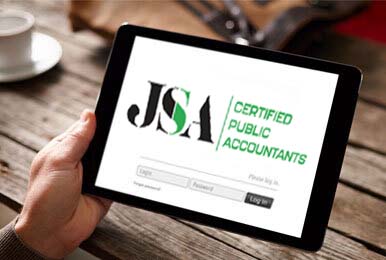As December 31, 2015 rapidly approaches, we would like to take this opportunity to remind you of a few items that can require special reporting. These items can increase your tax liability and trigger penalties if not accounted for correctly.
S-Corporation Shareholder-Employees
If your S-corporation pays health and accident insurance premiums on behalf of greater-than-two percent shareholder-employees, the S-corporation may deduct the cost of health and accident insurance premiums paid on their behalf if reported correctly. The S-corporation must report the premium amounts as wages for income tax withholding purposes on the shareholder-employee’s Form W-2. However, these amounts are not subject to Social Security, Medicare or FUTA. Contact us before the end of the year to assist you with proper reporting for payroll tax purposes.
Information Return Requirements- 1099s
If you made payments to any one person or business totaling $600 or more for services, you may be required to file an information return, commonly known as a 1099-MISC, to the IRS. Typically, the only exception to this is if the vendor is a corporation. All 1099s must be mailed to the recipients by January 31st.
There are multiple types of penalties associated with 1099 filing. Penalties for late filing of 1099s range from $50 to $250 per 1099. Intentional disregard of 1099 filing results in a penalty of $500 per 1099 with no maximum penalty. Intentional disregard occurs when a filer who knows, or should know of the rules or regulations, chooses to ignore its filing requirements. There are also penalties associated with incorrect or missing taxpayer identification numbers.
To avoid these penalties, the best practice is that a W-9, Request for Taxpayer Identification Number and Certification, be obtained before payment is made to any vendor regardless of the amount of the transaction or whether the vendor is a corporation or not. For your convenience, attached is a Form W-9. Should you misplace the attached form, you can download another copy at www.irs.gov.
Personal Use of Business Auto
Whether your company supplies business autos to employees primarily as “perks” or as necessary tools to help them get their work done, their personal use of the auto has tax implications for them and for you. An employee’s personal use of a company auto generally must be treated as a non-cash taxable fringe benefit that should be reported as wages and subject to social security taxes.
There are various tax rules to determine the amount of the non-cash fringe benefit. These rules also apply to any owner in a business that has their auto listed as a company asset and then uses that vehicle for both business and personal use. Please let us know if you would like our assistance in the calculation of this non-cash taxable fringe benefit as this fringe benefit should be reported in the final payroll run of the 2015 tax year.
Report of Foreign Bank and Financial Accounts (FBAR)
Starting in 2010, the U.S. Treasury Department and the IRS started focusing on foreign financial assets. The Bank Secrecy Act requires each United States person with a financial interest in, or signature authority over, any financial accounts with an aggregate value of more than $10,000 at any time during the calendar year, including bank, securities or other types of financial accounts in a foreign country to report that relationship by filing an FBAR. The FBAR must be received by the IRS on or before June 30 of the year following the calendar year being reported.
Civil penalties for failing to file an FBAR can be significant. The IRS can impose a $10,000 penalty for each non-willful violation of the FBAR filing requirement. Where a person willfully fails to file an FBAR, the IRS may impose a penalty equal to the greater of $100,000 or 50 percent of the account’s highest balance. In addition, criminal penalties for a willful failure to file can reach $250,000, 5 years in prison or both.
If you meet this filing requirement, contact us as soon as possible to begin accumulating the required documentation for reporting purposes.
Statement of Specified Foreign Financial Assets
There is a new reporting requirement in the Foreign Account Tax Compliance Act of 2010 (FATCA). Certain U.S. taxpayers holding specified foreign financial assets with an aggregate value exceeding $50,000 will report information about those assets on Form 8938, which must be attached to the taxpayer’s annual income tax return. This reporting requirement does not eliminate nor replace the FBAR filing discussed above.
Penalties for noncompliance with FATCA can be substantial. There is a failure to file (Form 8938) penalty of $10,000 and an additional penalty of up to $50,000 for continued failure to file after notification by the IRS, and a 40 percent penalty on an understatement of tax attributable to non-disclosed assets. Please inform us if you have any foreign bank and financial accounts.
As planning for and executing year-end reporting requirements can appear to be a daunting task, our office is prepared to assist you. Please do not hesitate to contact us should you have questions. We look forward to working with you.
Sincerely,
Johnson, Smith & Associates, PLLC




